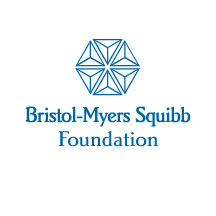 Bristol-Myers Squibb Foundation recently granted nine awards to research projects dedicated to studying and fighting hepatitis B virus (HBV) and hepatitis C virus (HCV) infection in China and India. The foundation has awarded a total of approximately $3.5 million, which will be divided in multi-year grants that will support 40 research projects in the two countries through the foundation’s Delivering Hope program.
Bristol-Myers Squibb Foundation recently granted nine awards to research projects dedicated to studying and fighting hepatitis B virus (HBV) and hepatitis C virus (HCV) infection in China and India. The foundation has awarded a total of approximately $3.5 million, which will be divided in multi-year grants that will support 40 research projects in the two countries through the foundation’s Delivering Hope program.
The nine awards are being used for projects that are, not only working to find a cure for the diseases, but also for combating the spread of the infections in high-risk patient populations. “Delivering Hope continues to increase its focus on HBV and HCV in China and India, the two countries that have the highest incidence of viral hepatitis worldwide,” stated the president of the Bristol-Myers Squibb Foundation, John Damonti.
In China, the Peking University Education Foundation was one of the awardees of the grants for its work on the development of a virtual community to offer system support for patients suffering from chronic hepatitis. In addition, the Hepatitis B Foundation and the Chinese Center for Disease Control and Prevention were also awarded for their program that aimed to empower rural populations in order to improve their involvement in managing the disease.
 The Wu Jieping Medical Foundation, on the other hand, is conducting research on the current status of treatment for HCV, as well as factors that impact the infection, disease management and education for at-risk populations, while the Inno Community Development Organisation is working to encourage the migrant population at Guangdong Province to get self-screening and raise awareness, as well as to create ten community-based Hepatitis C Intervention Centers.
The Wu Jieping Medical Foundation, on the other hand, is conducting research on the current status of treatment for HCV, as well as factors that impact the infection, disease management and education for at-risk populations, while the Inno Community Development Organisation is working to encourage the migrant population at Guangdong Province to get self-screening and raise awareness, as well as to create ten community-based Hepatitis C Intervention Centers.
In addition, the grants awarded in India include the pilot project from the All India Institute of Diabetes and Research, taking place in the two rural districts of Mehsana and Sabarkantha in the state of Gujrat, both of which have suffered outbreaks of HBV. A project that will offer training for HBV and HCV risk evaluation, prevention of the diseases and risk management for health care providers such as doctors, nurses or lab technicians that work in direct contact with hepatitis patients was also awarded.
United Way of Mumbai and SAMARTH were the last two organizations to be awarded the Bristol-Myers Squibb Foundation grant. The former is responsible for a program that provides medical interventions and extensive community education, a project that was developed within 18 slum areas in Mumbai, India — all in an effort to improve patient education and treatment of Hepatitis.

